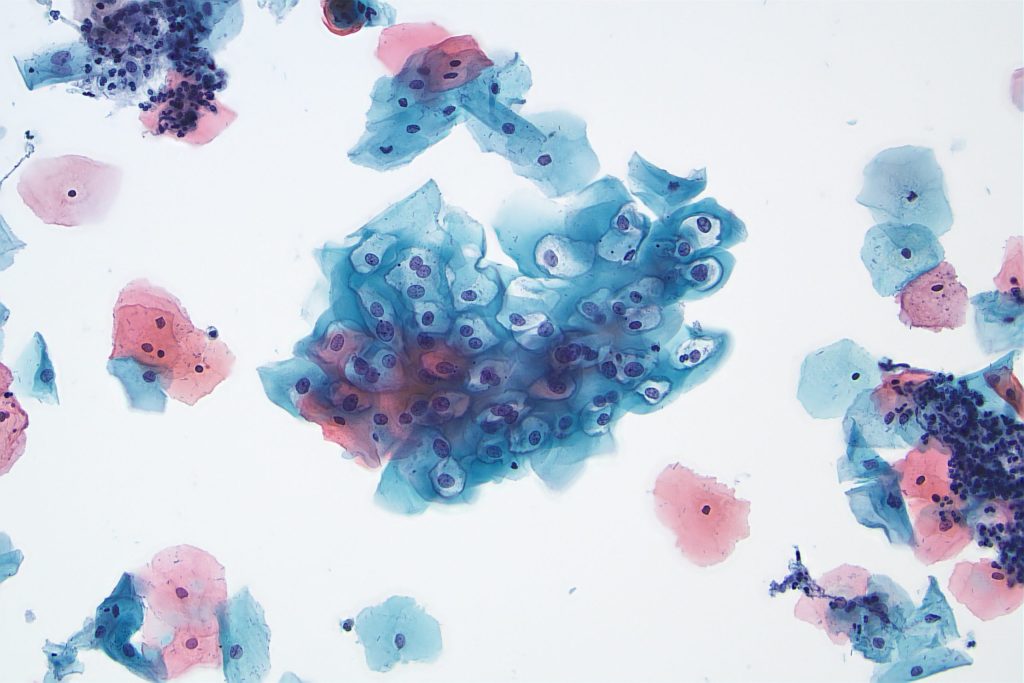ROSE SSA Technique
General suction advice: (only applicable to EBUS and EUS) Lymph nodes: suction is not used on lymph nodes on the first pass to prevent excess blood contaminant in the sample. Excess blood results in dilution of the sample and clotting, making ROSE slide preparation difficult and increasing the likelihood of diagnostic cellular material being encapsulated […]
Introduction
The purpose of rapid on-site evaluation single slide assessment (ROSE SSA) is to determine the diagnostic adequacy and viable yield of cytology samples in real time, allowing correct sample triage and optimal preservation of the material, ensuring that a complete diagnosis and patient eligibility for personalised targeted therapies can be established in one minimally invasive […]
Rapid on-site evaluation single slide assessment (ROSE SSA)

Author: Leonie Glinski The ROSE SSA chapter comprises the following material:
Juvenile granulose cell tumours
Clinical features Fig 101 – Juvenile granulosa cell tumor- Loose clusters of homogeneous neoplastic cells (H&E) Immunocytochemistry Electron microscopy Genetic studies Differential diagnosis Main points
Nasopharyngeal carcinoma
Clinical features Fig 104a – Nasopharyngeal carcinoma – Sheets of undifferentiated epithelial cells, with high nuclear/cytoplasmic ratio, vesicular nuclei and prominent nucleoli (H&E) Immunocytochemistry Genetic studies Differential diagnosis Main points
X – OTHERS
Adrenal cortical adenoma/carcinoma
Clinical features Fig 97 – Adrenal cortical adenoma/ carcinoma – Fine needle aspiration from an adrenal adenoma. Cellular smear with discohesive neoplastic cells with bland nuclei (H&E) Immunocytochemistry Differential diagnosis Main points
Pheochromocytoma
Clinical features Cytopathology Immunocytochemistry Genetic studies Differential diagnosis Main points
IX-ADRENAL TUMOURS OTHER THAN NEUROBLASTOMA
Langerhans Histiocytosis
For details see Histiocytic lesions Clinical features Cytopathology For details see Histiocytic lesions The authors do not have any experience of fine needle aspiration in this particular presentation in children. Immunocytochemistry For details see Histiocytic lesions Modern Techniques of Diagnosis For details see Histiocytic lesions Differential Diagnosis Main points

